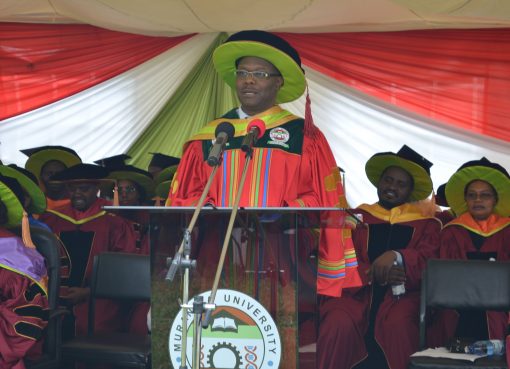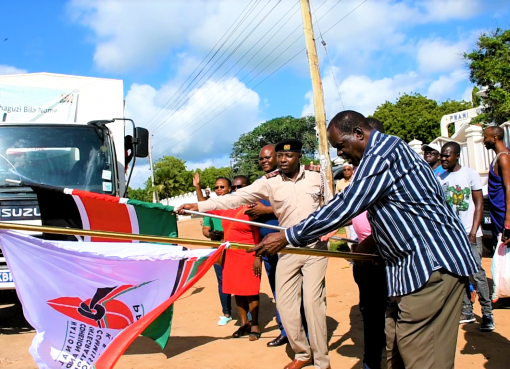In a major step towards modernising its registration and identity system, the government has prioritized implementation of the Maisha Namba project, which is set to revolutionize citizen’s access to government services.
Speaking during a stakeholders’ forum at Wanjohi in Nyandarua County, area Deputy County Commissioner (DCC) Rukia Chitechi, County Registrar of Persons Lydiah Njogu and other government officials, underscored the government’s commitment to improving citizen services by embracing technology.
Chitechi noted that the country’s National Registration and Identity system had lagged behind globally, putting Kenya at risk of non-compliance with international standards enforcement agencies.
The DCC added one of the key advantages of the Maisha Namba is its ability to eliminate the need for multiple enrollments and registrations.
She also noted that the 3rd Generation ID Cards to be rolled out as part of this project, will be issued without the need for new mass registrations, but on basis of the existing identification information held by various government agencies.
At the same time, it will incorporate advanced cryptographic technology for data security and support web-based and offline identity authentication, digital signatures and access to e-service platforms.
“After the sensitization program, the system shall be run through schools by ensuring every child born is assigned a maisha namba and shall use that number through school and after they attain 18 years, the number will translate to maisha namba,” said Chitechi.
On her part, the county Registrar of Persons said the number will also act as the registration number for government services, including education enrollment, health insurance and others, while also serving as a Personal Identification Number (PIN) for tax and social security purposes.
Njogu added that digitization of registration services promises to address various challenges including identifying and authenticating citizens, safeguarding primary registration documents such as birth certificates and national identity cards and improving the management of social programmes and government operations.
“At the heart of this digital transformation is the Maisha Namba, a unique Personal Identification Number assigned to every Kenyan citizen upon birth registration. Maisha Namba will serve as a lifelong identity from birth to death and will replace traditional birth certificate numbers,” she said.
On his part, National Registration Bureau Registrar, Kipipiri Sub-county Joel Muchunu, said that the new card will incorporate advanced security and technological enhancements in contrast to the existing IDs and will also facilitate digital identification.
“The Maisha Namba Project marks a significant step in Kenya’s journey towards a digitally enabled, efficient, and secure identification system, ultimately contributing to improved service delivery and national security.
The move will streamline and efficiently enhance the delivery of services to citizens, while ensuring a robust and secure identification and authentication system for all Kenyan residents,” he said.
Digital migration is one of President William Ruto’s administration’s Bottom-Up Economic Transformation Agenda (BETA), tied to the digitization of government services.
By Antony Mwangi



